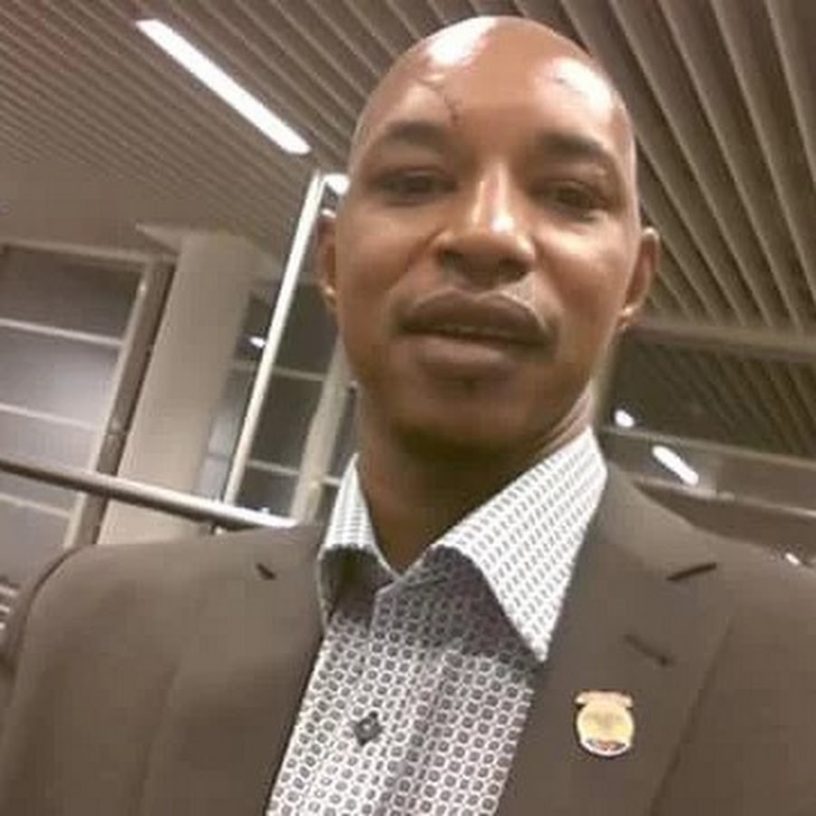By Dr. Assan Jallow

“To make actions fit for purpose without prejudice, hate, or malice, our minds ought to flow in the streams of conscientious reasoning abilities and not in the pool where the poverty of ideas primes as an alternative mechanism to chart the people’s course of development and growth.” – Assan Jallow
Abstract
This essay analyzes the Citizens Alliance’s free-market economy and presents the PDOIS’s cooperative economics (“Gonga“), which follows a transformative agenda. In this essay, the author makes the argument that CA’s economic model is flawed and a recipe for economic disaster, since its framework is designed to perpetuate the state of poverty, unemployment, and underdevelopment in The Gambia with an apparent lack of people-oriented development. Governing economic management requires the formulation of policies and ideas that are in line with economic reality rather than relying on illusions and conjectures generated by political pronouncement and rhetorics.This context informs people and nations to stay cautious in their development paths and pursue principles that are ethically justified, workable, sound, and rationally-driven with the right macroeconomic fundamentals, instead of corruption that enslaves the whole society and robs citizens of their sovereign wealth. In this paper, the author posits that PDOIS’s transformative agenda is the best development strategy and economic model that will stand the test of time and inspire Gambians towards growth and development based on self-reliance, creativity, and sovereign ingenuity of the state.
1.0 Introduction
The art of noticing is a way of thinking that allows logical thinking to win; it involves critically monitoring the surroundings to pick up on what will present itself before it is too late. To discern the truth and avoid being misled by people who may intentionally manipulate the truth to further only their interests, one must take off the illusory masks that conceal the truth. In this respect, acknowledging the economic realities in the country from the perspective of emotional intelligence is the first step to grasping the historical genesis of a confronted societal problem so we can reason according to conscience and truth, instead of following fads. The purpose of this is to propose solutions and policy recommendations so we can help to resolve these issues in advance and not compound them further, thus preventing the grandeurs of economic masturbation from slaughtering the cause of economic growth and development for the sake of political expediency and willful ignorance.
The purpose of the “Art of Reasoning” is to deconstruct and rebuild the pristine glory of citizens and government institutions by presenting actors who have a comprehensive understanding of the fundamental issues surrounding an obsolete economic model that has rendered us dependent on handouts since independence. It aids in re-establishing procedures that will enable effective governance, thus increasing national consensus, competitiveness, and enhancing national security.
If our national development programs had been more strategically oriented, we might have significantly reduced the number of missed opportunities, misguided policies, and misplaced priorities. We would be in a better place in the comity of nations if those responsible for developing and implementing our country’s economic policies had applied a regime of statecraft in public administration based on the notions of ideation and entrepreneurship instead of the privatization myths.As a sovereign and independent nation, our claimant rights donot exist, if all factors are held constant in that regime. Our policy-making process has been hijacked by the dark forces of intellectual dishonesty, administrative ineptitude, and pseudo–policy analysis, with the resultant effects of poorly executed policies and programs. True that no system is completely free of flaws because structures are designed and built by people, not the other way around. However, a system if not properly designed, guided, and implemented with a wrong set of objectives and unmeasured deliverables can have the opposite effect of a catastrophic failure. Sadly, our designed economic governance system is flawed. It is flawed in the sense that the forces of free-market economic policies have locked out opportunities and shut down our ability to innovate, establish, and execute the entrepreneurial state in our development governance. This failed development model can be seen in both successive governments of The Gambia (i.e., the PPP and the APRC). My question is why we continue to pursue an economic model that fails to build the necessary foundational theories and practice of ethics execution into our governance to incorporate the realities of our nation’s economic life. Resulting from this failure, we have been unable to apply inductive approaches to weigh the adverse interactions between deregulation and aid against our priority development projects.
In consequence, our economists and policy analysts have failed to be proactive and think outside the box to prevent the deployment of additional economic damage, which exacerbates the downward spiral of poverty and misleads the country into relying on handouts for survival or risking extinction. This is a fundamental flaw that caused us to fail to address a deep-seated economic challenge in our development governance with half-baked theories and play to the gallery at the pleasure of donors throughout a monumental error of our myriad of challenges.
2.0 Discussion on PDOIS’S and CA’s Economic Model of Development
Effective economic resource management requires an inwardly conceived policy convergence thrust reflecting economic realities, coupled with a synergistic strategy aimed at mobilizing and redistributing resources for the public good, rather than attenuating the state’s participation in the economy’s productive base. We cannot sail our economic development as pointers and draw conclusions from copy-pasted theories that are contrary to our national values, history, culture, and traditions.
2.1 Argument Against the Preposterous Citizen’s Alliance Economic Model
I want to make it clear that I am not against a free-market economy or capitalism. Doing so will question my knowledge of economics and finance. In addition, my rebuttal focuses on the goals of academic reasoning and is not meant to be misconstrued by readers as an attack on Dr. Ceesay.
Despite their differences, neoclassical, Keynesian, and Marxian views on economics continue to dominate, with each dismissing the alternatives as inadequate. My conviction is based on the principle that the conditions for a free-market economy do not exist and are therefore unworkable for resource-constrained and the coastline-prospective Gambia. Due to The Gambia’s limited governance fundamentals and ethical foundation, the objectives of a free-market economy remain abstract in our country. We have no foundations of governance fundamentals and no ethics to ensure their implementation for public benefit. The reason is as a result of failing to adopt the rudiments of socialism in our development. It is important to note that any designed economic theory is theorized on the assumption of given resources and technology, which are affected by socio-economic and political dynamics, where demography, culture, traditions, and the environment need to be considered. Throughout the developed world, the free-market economy gained traction as socialism nurtured and nourished their respective productive bases to spur growth before they then opened up economic opportunities to the private sector. Sadly, we tend to lean toward theories and models through the orthodox culture of theoretical assumptions, establishing a dogmatic allegiance or acceptance without understanding their historical foundation and failing to critically assess the intricacies and impacts of their implementation on the Gambian economy and its people. We, therefore, shortchange our development currency, because anything from abroad becomes new prosperity of gold. Rather than relying on our own beliefs, we are being influenced and drawn from the outside as opposed to our perspective of self-belief, leaving us vulnerable as the “Duped Prince”. We need a new cultural orientation and revolution to free ourselves from shallow thinking and textbook analysis, which lack the gravitas needed for comprehensive economic assessments to diagnose and solve our seeminglyintractable economic problems.
Dr. Ceesay’s argument on the Citizen’s Alliance economic model for The Gambia, following the debate with Hon. Halifa Sallah astounded me and threw me into a pit of despair, since his line of argument was weak, illogical, and outside the merited discourse of the political economy, particularly in the spectrum of public and development economics. The interpretation and the cited examples of the Former Soviet Union (USSR) and China he used as oppressive communist regimes and failure of socialism have made him fail in assessing the true nature and theory behind Marxism. It is important to distinguish a free-market economy from capitalism, and I need not spend time arguing about a topic that has been discussed by economists who have been tested. Nevertheless, it is important to provide context for readers to grasp the sharp distinction. In a free market, supply and demand are determined by buyer-seller interactional effects with little or no government intervention, whereas capitalism refers to the creation of wealth and ownership of capital, production, and distribution. With this clarity, one will be able to draw inferences and debate on the substantive issues surrounding economic systems and the models of contesting theories. Notwithstanding, the rhythm of his party’s economic policies is a no-brainer for The Gambia as they have been tested and delivered no results besides the price tags of under-development, the stench of unabated corruption, and corrupt practices, and increased poverty level across households for our country since independence.
Below are the reasons we advance against CA’s free-market policies for The Gambia economy:
people’s lives and livelihoods. For example, The Gambia’s GDP per capita on a purchasing power parity basis was $2, 343 in 2009, and from 2017 to 2021, it registered a slightly significant drop of $2, 073, $2,210, $2,315, and 2,276 with percentage (%) changes of 0.19 percent, 6.62 percent, 4.79 percent, and -1.74 percent, respectively. When a country’s purchasing power falls significantly, inflation tends to erode the currency and cause price increases in the economy, which has a significant impact on the market.
In essence, the free-market policy has failed miserably in the Gambia, and replicating it is a repudiation on people’s centered development cause which is akin to resurrecting a recipe for economic disaster or performing surgery with a cutlass rather than the proper tools. We cannot accelerate our development by relying on aid and grants, which are impediments to economic growth and development. We also cannot pursue national development based on bleating and honing the illusory trumpets that the “private sector is the engine of growth” and denying government the power of state entrepreneurship to exert, direct and manage our sovereign national wealth. The private sector is critical in our national economy and the likelihood of CA’s economic model reducing poverty is extremely low, and it will be counter-intuitive in delivering the anticipated development results to citizens. This is because both the successive governments of our republic have pursued the same policies that have engulfed us in the pool of holding our beggar’s bowl asking for a handout to finance our national budget. What good have millions of dollars in aid done for our country aside from tying us to the epidermic ropes of countless debt?
The Gambia cannot function based on voluntary economic management exchanges without government intervention. That is an unworkable economic model that preys on our economy and puts it at the mercy of economic vultures, established oligarchs, and ‘Men in Grey’ Suits’ who disguise themselves as genuine investors to mask profits while adding no value to the economy by addressing the issues of poverty and unemployment.
It is without a doubt that the Gambian economy moves in a path-dependent direction under ‘free-market’ conditions. Our country is facing a multitude of societal challenges, such as the COVID-19 pandemic, climate change, youth unemployment, and increased economic inequalities. An inference can be drawn from a historical case study where one could sense the widening income disparities between the “haves” and “have nots” in the country. Even if you draw a line between rural and urban areas, you can see the country’s striking deep-seated income inequality spiraling like a wild goose. To address these challenges, the government must act – not only by repairing market failures but by actively creating and shaping (new) markets while regulating existing ones. This is the perspective of the PDOIS transformative agenda (Gonga), which asks that the State/or government be proactive in providing the wherewithal, resources, and opportunities to spur meaningful and sustainable development and growth.
2.2 A state-of-play analysis of PDOIS’s economic model and the need to understanding DOIS’s framework for The Gambian Economy
The social state is not the antithesis of disenfranchisement, but rather its springboard and towers of development, enabling the people to own and direct the means of production for the good of society, not for only the benefit of a few at the expense of the majority. Since we failed to assess our country’s economic realities and were only interested in receiving so-called development aid, we had lost our conscience we didn’t know which economic model would best drive development in our economy.
Socialism is not the antithesis of disenfranchisement but rather the springboard and towers of development, empowering people to own the means of production, to chart their future on the plane of economic prosperity, not for the benefit of a few at the expense of the majority in society. We had lost our conscience because we didn’t know which economic model would best propel our country’s development as we failed to assess our economic realities and were only interested in the handouts of so-called development aid. We pinned our hope on something as intangible as fear, illiteracy, intellectual dishonesty, hypocrisy, and unforgivable ignorance, which bore fruit and rendered us lifeless in the dungeon of the poverty of ideas.
The PDOIS’s socialist agenda (Gonga) is the right development cure for The Gambia’s restoration on issue-based policies that are generated through the windscreens of pragmatic concerns and ideation not to an ideology but comprehensively within the context of the numerous issues faced by our society in finding alternatives to those challenging problems in our lives, and by extension to society to shoulder a productive conversation based on conscience and decency in the realm of democracy, good governance, sovereignty, transparency, accountability, and independence.
It is the only reassuring restitution to what we have lost since independence, as well as in guaranteeing our sovereign wealth, which has been hijacked by the intrusion of faulty development theories and models by economic vultures under the guise of privatization, and that the government’s role should be limited (i.e., the government should stick to fixing markets, rather than creating and shaping them). Wow, that’s fascinating! For a long time, we had been brainwashed to believe that this was the food basket of our historic quandary: a risky proposition and position we had taken that had imprisoned us in the dungeon of senile policies that lack direction and any functional grips in their designs and applications, thus leaving us at the mercy of hopelessness and destitution under the ropes of economic strangulation, that had hijacked our conscience, reasoning abilities, technical competences, and creative ingenuity in doing the right things in our national development parameters since independence.
The PDOIS’s democratic socialism model is a wind of hope and change. It will engineer a transformative agenda whereby the productive base of the economy receives the attention and support it deserves to provide decent, well-paying jobs and skills to catapult an innovative-led, empowered, and enterprising youth population-driven with patriotism that guarantees, shape, transform and safeguard the gates of economic independence, financial stability, national security, youth, and women empowerment where development, accountability and indisputable personal and collective courage of conviction anchored on the thrust of sacrifice, justice and fidelity, unity in diversity, and responsibility can sprout, survive, thrives, and stand the test of times. That is what the PDOIS’s transformative agenda is all about – i.e., citizenship ownership and responsibility in directing our national development programs as a sovereign and independent country of men and women who dare to dream and desired to seize the moment with the prepared minds and willing hearts for the country and not for self-serving desires.
For far too long, critics have claimed that the PDOIS’s socialist agenda is unfit for purpose and will not benefit the small Gambia. The argument presented by proponents of this textbook view is flawed, as it seeks to downplay the driving force behind the PDOIS’s socialist agenda by peddling unthinkable conspiracy theories as a result of suffering from the paralysis of self-serving desire and intellectual dishonesty to notoriously manipulate and control the minds of the people.
The socialist agenda of the PDOIS will work because it is anchored on the notion that sovereignty belongs to the citizens.To have such convictions and beliefs assures the courage to act democratically and to run the economy and society for the benefit of the common good, rather than to profit a few. To reach greater economic and social democracy, we must transform many of the structures of our government and economy so that ordinary Gambians can participate in the many decisions that affect their lives.
We must understand that the socialist agenda of PDOIS does not seek to eliminate private sector investments in the economy, but rather to make the government pursue the path of national development as an entrepreneurial agent of growth and bringing privately held corporations under greater democratic oversight so that they fulfill their important roles as provided by the state, including by utilizing government regulations and tax incentives, which are designed to encourage companies to act in the public interest. This is because the PDOIS model represents a genuine reorganization of long-standing relationships between the public and private sectors.
As a social democrat, I believe that socialism encompasses economic, political, and civil democracy, namely the resources needed to succeed in your community, and by implication, at the national level, without prejudice to the means of production or the redistribution of wealth. In this way, all people are assured of the necessities of life regardless of their social status, age, gender, ethnicity, religious affiliation, or place of origin.
Let me provide some context for the free-market doctrine’s preacher, the United States of America. In reality, the United States is not what it appears to be, as many pundits believe, by downplaying socialism and equating it with communism and deprivation of rights. The United States operates under a socialist capitalist system. The socialist model prioritizes not just the utilization of resources for the benefit of the public, but also the development of the human spirit with a sense of collective responsibility, duality, and mutuality. Over the past few decades, the preacher of free-market doctrine has led a massive public investment in technology and innovation, which has sustained and cultivated the country’s economic growth.
The United States has a mixed economy that operates on a socialist model of capitalism. A socialist model prioritizes not only the use of resources for the public good, but also the pursuit of critical human development with a sense of collective responsibility, duality, and mutuality. For decades, the preacher of free-market doctrine has directed large public investment programs in technology and innovation, which have underpinned the country’s past and current economic success. The United States has supported innovation-driven growth through the internet, biotech, and even shale gas, investing in the most uncertain phase of the innovation cycle until its smooth ride later. We are not doing that either as a country, which means we have left our development models to the mercy of political pronouncements proclaiming “the private sector drives growth. The private sector is indeed a key development partner, but cannot do much that the state has failed to do in terms of design and implementation.
We were duped and taken for a ride by our development partners, whose intention was to distract and distance us from pursuing our independence of thought in directing and managing our economy.
If we want to emulate the US model, we should follow what it did, instead of what it claims. The main goal of this lesson is to learn how to organize, direct, and evaluate State investments in a way that is strategic, flexible, and mission-oriented. Only then will top minds consider it an honor to work for the government, rather than being pressed to move on to the private sector.
Democracy and socialism are inextricably linked. Economic vultures obsessed with constructing their stomach infrastructure and that of their cronies have created false ideas and narratives about socialism to control the means of production and exploit people to their interests with self-driven elitism.
For the Gambia to excel as a geopolitical player in the West African sub-region and by extension in the global market, our politicians and policymakers need the courage to go against the tide of popular rhetoric and outline a bolder vision for the state’s dynamic role in encouraging economic growth. As (John Maynard) Keynes indicated in The End of Laissez-Faire (1926, 46), “what the government must do is not to do things that individuals already do; yet to do those things that at present are not done. The public sector in The Gambia must establish a mission and vision that is clear, robust, achievable, and reflects the citizens’ aspirations.
Conclusion
In our country’s economic system and policies, the free-market economic system has shown a structural flaw and vulnerability.Our development prospects have been stifled, and our independence and competitiveness on the global stage, as well as control over our maritime resources, have been severely hampered by rent-seeking chaos and reins of the free-market economic policies. And, limiting government intervention in the market economy has dire consequences to economic growth and development. Thus, a more active and effective government is the best development and economic model for The Gambia to spur growth, expand opportunities, end the cycle of poverty, inequality, and underdevelopment, restore its lost glory, untangle state entrepreneurship, and cage the poverty of ideas. We must break the chains of our underdevelopment. The reason for this is because a free-market economy undermines our sovereign national wealth, exposing our young people to suffering through unemployment, hopelessness, destitution, and economic woes where we will need handouts for survival and development funding. This means that the free-market economic policy is counterproductive to our country’s development goals and will continue to lead to increased poverty and misplaced priorities.Despite the growing threat posed by hostile donor conditions and market inefficiencies, let us not sacrifice our sovereign national wealth on the altars of deregulation, less/no government intervention in the market, development aid, and handouts. This is because our economy is not able to cope with prolonged disruptions caused by people or natural disasters.
To conclude, I believe, with great certainty, that the rationales offered by the subscribers and students’ of the free-market policy in the Gambia to resolve bloated government and streamline the civil service are weak, illogical, and deceptive.Given our economy’s volatility and bearishness for the past 56 years, we recommend implementing the proposed PDOIS’s economic policy to establish a new development paradigm tailored to safeguard our sovereign wealth through the effective implementation of the right macroeconomic fundamentals that are sound and adequate. That is the right thing to do or risked surrendering to pseudoeconomic governance and continued to be stuck in a web of poverty, unemployment, and ignorance.




Ma sha Allah great and thanks for sharing